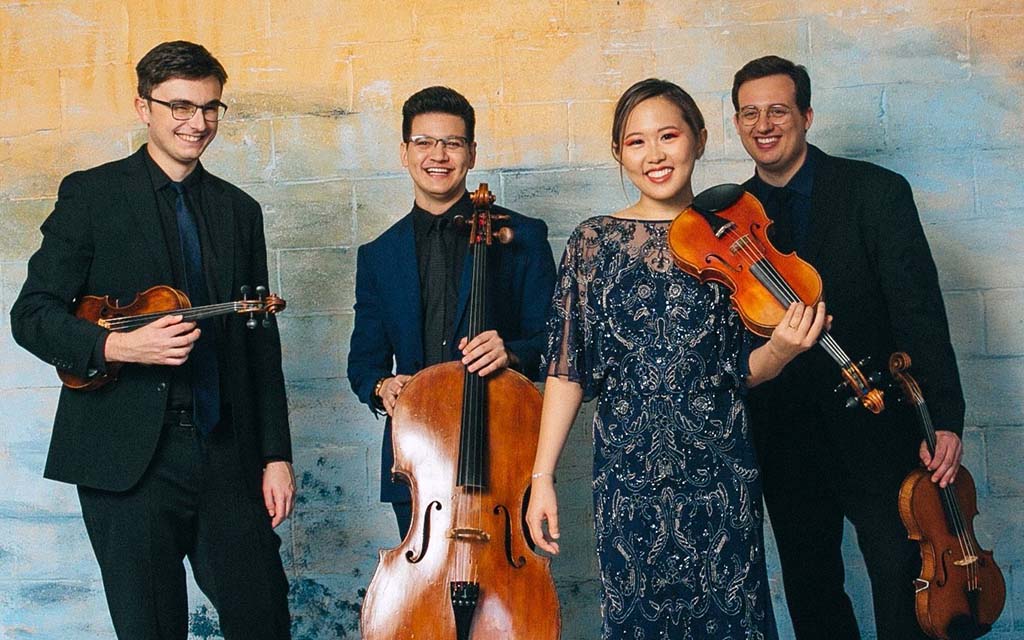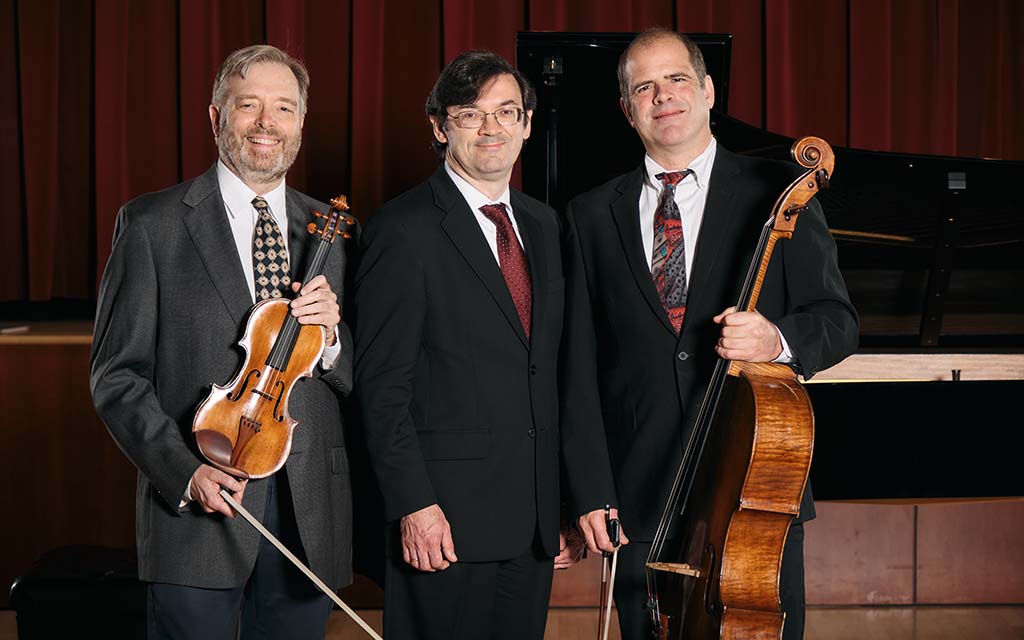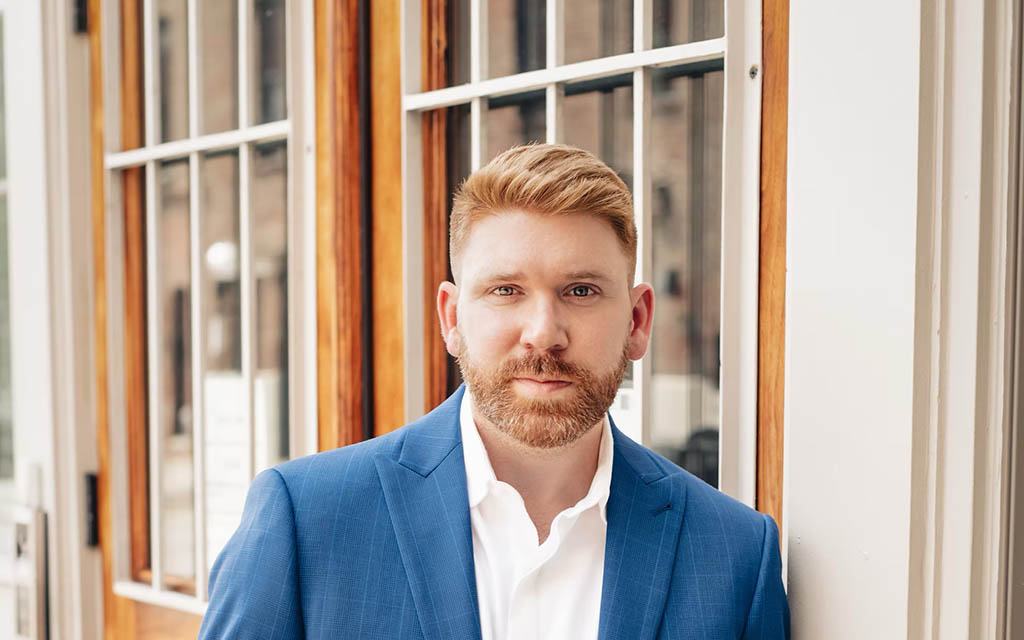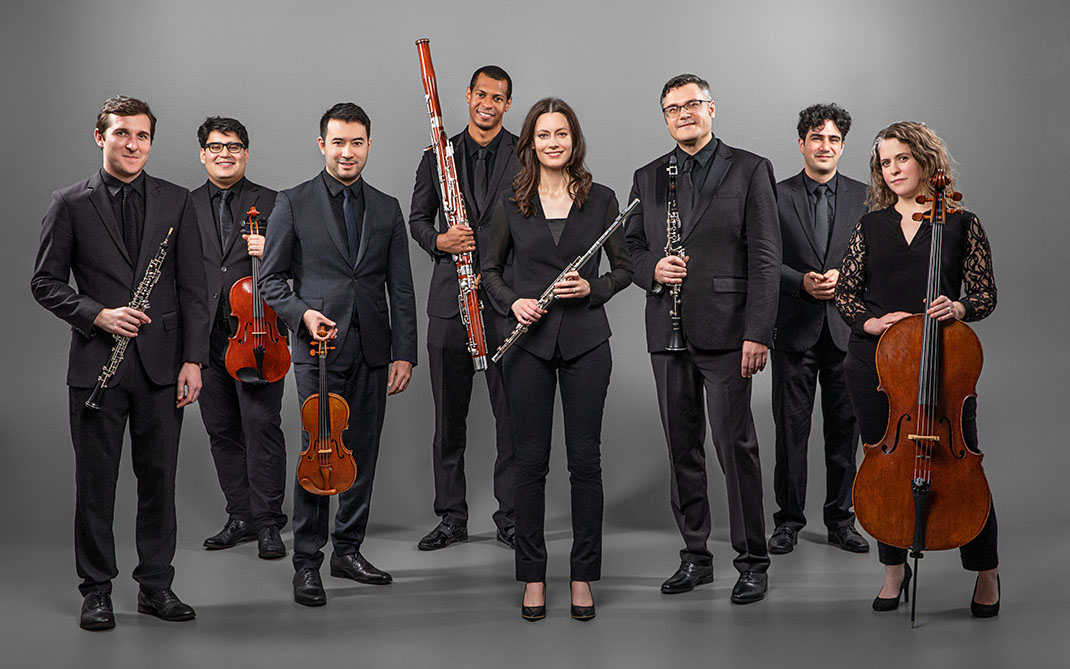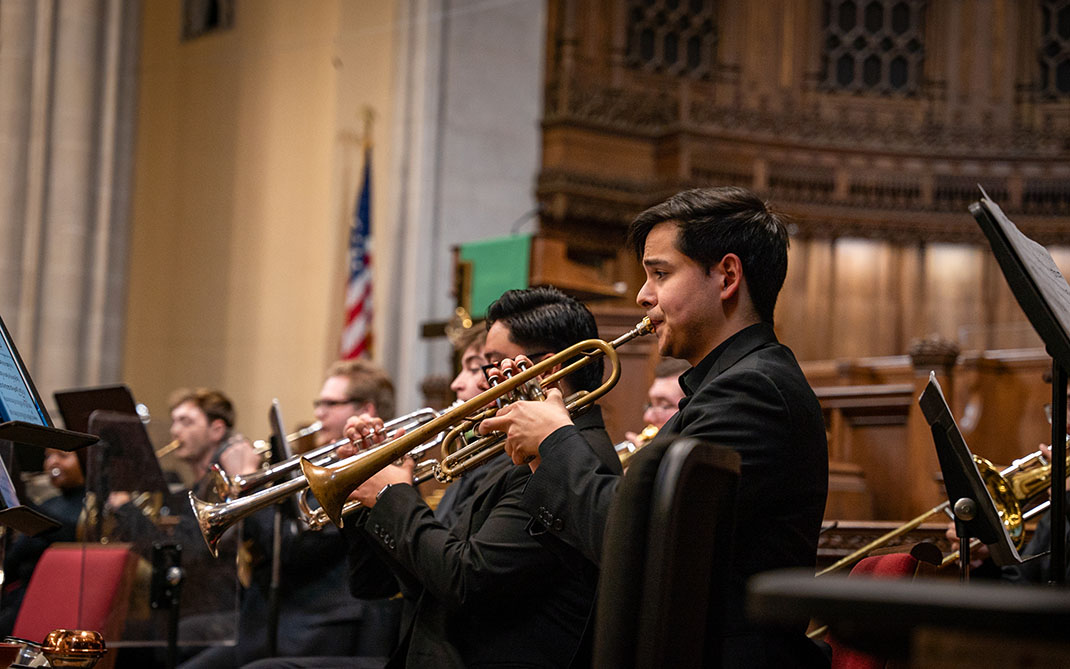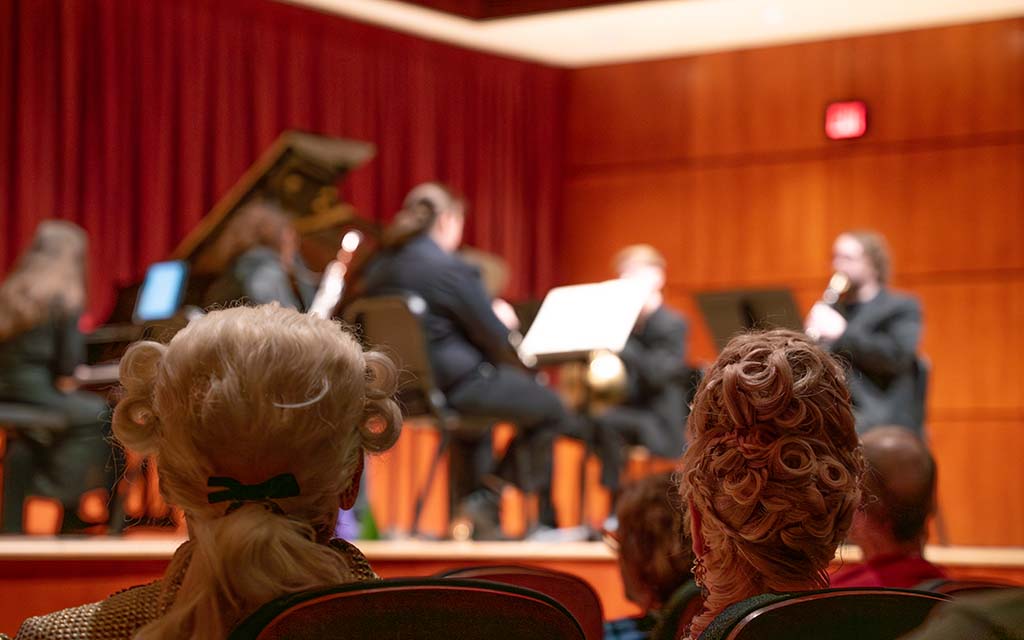Definitions & Sample Criteria for ESP Rank Promotion
The University of North Carolina School of the Arts is the state’s unique professional school for the performing, visual, and moving image arts. Providing education in the liberal arts and sciences on the high school and undergraduate level, along with dedicated professional training on the high school, undergraduate and graduate levels, the Faculty of UNCSA deliver programs and curricula the foci of which vary greatly. To meet the variety of curricula and programs, it is expected that the Faculty will have a range of credentials and experiences.
At UNCSA, those who teach solely in the High School subscribe to a salary scale system. Other Faculty teach in both High School and College programs, or teach solely at the undergraduate or graduate level. It is for the latter groups that the following details are set forth.
Since the programs, credentials and specialties of Faculty are expected to be diverse, the evaluation of Faculty for rank promotion takes into account the nature of the program and school in which the Faculty member is involved, as well as the contributions of teaching, service, creative activity and research made by the Faculty member at the university. A Faculty member whose major responsibilities are in a graduate program may have a different balance of expectations than one whose responsibilities lie primarily in an undergraduate program. A Faculty member in a liberal arts and sciences area may have a different balance than one in a creative area, such as dance or music, or in an applied program, such as properties construction.
It is neither possible nor desirable to spell out the factors unique to every area in this document, though the materials generated by each arts school and division provide suggestions and possibilities that are neither prohibitive nor exhaustive. Nevertheless, quality of performance must always be evaluated according to standards of excellence appropriate to the division or school, and the responsibilities of the Faculty member.
Definition of Engagement
The notion of Engagement is adapted from Ernest Boyer’s vision of a campus whose Teaching, Creative and Research activities, and three types of service – to the institution, to the community and to the profession – are connected within and across disciplines and within and across local, regional and professional communities and objectives that are collateral to UNCSA’s mission.
Contractual duties that are usual and expected are not considered to be Engaged activities.
Engagement, for the purpose of rank promotion, means that a Faculty member‘s professional efforts in areas of evaluative criteria are propelled by heightened intent, purpose and focus. “Engagement” creates what Boyer calls “a special climate” in which Faculty efforts in all areas of evaluative criteria are committed, vigorous, dynamic, energetic and sustained over time.
Definition of Sustained Activity
Sustained activity is the persistent, consistent, continual or regularly recurring value-driven involvement in focused Creative Activity/Research, Service or Teaching path objectives. Sustained activity may take different forms. It is the responsibility of the well-prepared Faculty member applying for rank promotion to make her/his "case" by providing strong context and solid documentation for consideration.
Sustained activity may be publicly manifested and subject to peer review or other reflective feedback recognized in the profession, field or domain. Sustained activity may also be pursued through unpublished -- but documented -- work. Some examples would be research or project interests that demonstrate: abiding interests, professionally-related values, plan of development. In all cases, whether the sustained activities are failed or successful; singular or collaborative; moving toward one conceived goal or multidirectional (e.g., teaching/learning), or if they are reiterations of activity dedicated to ever-refining, strengthening, bolstering or sharpening professional skillsets or path objectives, they must clearly be carried forward over time.
It is possible to demonstrate work-related interest, applied values and activities that are kept up or kept going -- that is, maintained -- on a regular or recurring basis. How much vital interest and dynamic engagement constitute sustained engagement is difficult to assess in general terms, since different Faculty have their own views of what that work means and because a large number of contextual characteristics may influence its longevity or usefulness. It will be up to the Faculty candidate for rank promotion to demonstrate the sustained activity through articulated context and documentation.
One-time events and projects are generally not considered sustained, although they may be evidence of engaged activity on the part of the Faculty member. Such one-time events may, however, be taken together to demonstrate a greater unifying and sustained interest.
It is the responsibility of the Faculty member applying for Rank Promotion to make her/his "case" for consideration as Engaged and Sustained activity by all reviewers in the Self-evaluation portion of the application.
The Narrative self-evaluation portion of the application is where the faculty member provides a strong context and solid documentation for Engaged and Sustained activities.
Overview of ESP Criteria for Rank Promotion Process
Recommendations for promotion of rank are based on an evaluation of the overall quality of a Faculty member's activity and contributions in three primary areas:
- Engaged Creative Activity/Research
- Engaged Teaching
- Engaged Service.
The following chart provides some general examples of types of activities that may be intensified, lifted and sustained with heightened intent, focus and commitment, but is in no way complete.
| PURPOSE OF ACTIVITY | SAMPLE MEASURES OF PERFORMANCE |
|---|---|
| Build new knowledge through research |
|
| Interpret the use of knowledge across disciplines |
|
| Aid society and professions in addressing problems |
|
| Study teaching models and practices to achieve optimal learning and sharing of information |
|
| Bring heightened intent, purpose and focus to all types of professional development, reaching deeply into the institutional community and actively reaching out to collateral communities |
|
| Initiate or take art in activities and projects that demonstrate abiding interests, professionally-related values, and/or plan of development of the faculty member. |
|
| Mindfully, carefully and thoughtfully engage in self-critique, contemplation and analysis of the activities undertaken |
|
Adapted by E. Rosenberg from Marta Nibert. (nd) Boyer’s Model of Scholarship. Retrieved January 14, 2014 from http://www.pcrest.com/PC/FGB/test/2_5_1.html
The following list of activities is intended to spark ideas about possible engaged and sustained activities. It is not intended to be prescriptive or comprehensive, nor is there an intended order of priority for the three areas of activity.
The Faculty member may document other significant activity not included in the following criteria. It is the responsibility of the Faculty members to demonstrate the significance or importance of their activities, and to identify the activities which they deem as most important within each area. The following are possible criteria for Faculty evaluation.
Finally, the list of criteria here is an amalgamation of all of the lists generated by all of the college level Arts Schools -- Dance, Design and Production, Drama, Filmmaking and Music -- and Division of Liberal Arts of UNCSA.
Engaged Service
Service to Community
- Demonstrate leadership in local and regional boards, clubs, associations, organizations, government bodies, or community activities
- Donate pro bono consultation without pay to individuals/organizations
- Orchestrate guest artists’ visits to UNCSA to work with students, Faculty, collateral communities and regional audiences
- Participate in local and regional boards, clubs, associations, organizations, government
bodies,
or community activities - Receive honors or recognitions awarded for community service
- Volunteer in charitable and community activities
Service to Profession
- Donate pro bono consultations for local, regional, national or international professionally recognized associations or organizations
- Donate pro bono external reviews
- Edit and/or participate through board membership on professionally recognized periodicals, journals or related publications or equivalent media formats
- Engage in membership in local, regional, national or international professionally recognized committees, associations or organizations
- Invent technology, processes, systems or other elements that improve the professional field or domain
- Lead in local, regional, national or international professionally recognized committees, associations or organizations
- Publish in professionally recognized periodicals, journals or related media formats
- Receive honors or recognitions awarded for service to profession
Service to UNCSA
- Adjudicate competitions
- Consult and provide support o peer Faculty projects
- Engage in student recruitment
- Engage in UNCSA representation to UNC body
- Lead in campus wide committee
- Offer professional community outreach, fundraising, or other activities with local organizations to raise awareness of school and event
- Participate in Art School or Division Committee
- Participate in campus wide committee
- Participate in juried activities
- Provide dedicated and sustained mentoring of students and/or alumni and/or Faculty, including introduction into local, regional, national or international venues or communities
- Provide pro bono support to colleagues
- Provide student advising that is exceptional and sustained to student organizations , clubs, events or individuals with instructional challenges
- Receive honors or recognitions awarded for service to UNCSA
- Undertake collegial activities
Workshops and Lectures
Offer professional, collateral or school, program or division-related or campus-wide
- colloquia
- lectures
- master classes
- performances
- readings
- workshops
Engaged Teaching
Classroom Performance and Innovation
- Engage in teaching workload/ overload (may be determined by student credit hours )
- Provide dedicated and sustained student mentoring, including guiding current students’ success in areas such as competitions, competitive festivals, university and/or conservatory programs, job placement, juried exhibits, etc.
- Provide student advising that is exceptional and sustained, beyond the normal, expected, contracted duty
- Provide student tutorials beyond regular office hours
- Receive positive classroom instructional evaluations or document and demonstrate constructive response to challenges inherent in classroom instructional evaluations
- Teach independent studies
Course Preparation
- Collaborate on teaching activities
- Innovate and refine syllabi in a manner that demonstrates sustained commitment beyond normal contractual expectations
- Research
Curricular Development
- Collaborative teaching
- Create new curricula
- Demonstrably improve existing curricula
- Develop interdisciplinary class, course or curricula
- Give demonstrations of classroom work
- Undertake collaborative research
Instructional Techniques
- Engage in pedagogical experimentation and innovation
- Implement pedagogies
- Improve classroom environment with
- multimedia
- non technological classroom ancillaries
- other specialized equipment
- technology
Professional Training
- Take additional training in pedagogy, methodology, or any instruction related activity
- Undertake certification in pedagogy, methodology, or any instruction related activity
- Train in pedagogical, academic, or new skill sets
Engaged Creative Activity/Research
Creative Activity
- Compose or commission new works
- Create, direct, partner with professional companies in performance and/or compositional lab/intensives
- Creative production in field of teaching, educational media, collateral or related field
- Work in freelance design, management, performance, or production in theatre, opera, dance, industrials, film, television, gaming, online media, books, etc.
- Lecture in primary, collateral or field related subjects in professional settings
- Performing on or produce commercially-released recordings, video, disc, or other media
- Perform premieres of new work
- Present public performances
Collaboration
- Collaborate with other local, regional, national and international arts organizations/agencies on the production of new works or intellectual property, including interdisciplinary efforts
- Undertake interdisciplinary or team research projects
Conferences & Workshops
- Adjudicate
- Participate in creative workshops, master classes, conferences, industry organizations, festivals, residencies, poster sessions, symposia, or other creative skills and/or professional development activity, which includes attending and/or presenting in a demonstrably related discipline or collateral professional discipline.
- Participate in professional agents’ workshops at UNCSA.
Consulting
- Attend and take and give notes or advice on professional and school related activities in any discipline (e.g., plays, musicals, performances, demonstrations, performance venues)
- Provide peer review, editorial support, proofreading, script doctoring, etc.
Education & Professional Skills Acquisition
- Gain certifications or recognition in field of interest
- Engage in private study in field of interest
- Participate in professional enrichment and continuing education/training
- Pursue advanced degree related to field of interest
Develop, Initiate, Merge, Receive and/or Write:
- Grants
- Fellowships
- Sponsored research
- Scholarships
- Awards
Research & Publication
- Conduct research in a laboratory, clinic, library, etc.
- Develop new software, technology, tools, or techniques for industry
- Edit, translate or otherwise generate scholarly books, media and other materials
- Research, discover and prepare new work
- Conduct scholarly research in conventional and/or mixed media
- Create and document unpublished material such as consulting and research reports, recordings, instructional notes taken and given for performances, lectures and workshops given, original music and arrangements
- Work with new technologies and techniques that are innovative or experimental
- Write and/or edit peer-reviewed or demonstrably professional publications including books, anthologies, recordings, instructional research, articles, reviews, etc.
- Document activities that have been reviewed and published
